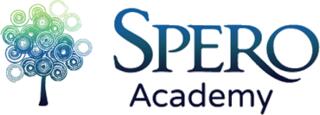
Children with autism may face a range of speech-language challenges that can affect their ability to succeed in school environments or develop social skills. For example, some children on the spectrum are nonverbal, while others struggle with conversational speech and/or understanding the nuances of language used by others. About one in three children with autism has trouble producing speech or effectively communicating with others.
Importance of Speech-Language Therapy for Students With Autism
Speech therapy can help children match the mechanics of language with the conversational meaning and social use of language to become a more confident and effective communicator. Depending on the child’s needs, the Speech-Language Pathologists may work with them on mastering spoken language, understanding and interpreting meaning based on context, learning nonverbal cues, or some combination of the three.
The goal of speech therapy is to help children with autism not only learn how to speak, but learn how to effectively use language to communicate both verbally and nonverbally with peers and adults alike. Helping children with autism develop stronger communication skills enhances quality of life by improving their ability to form relationships and function in day-to-day environments.
Early Identification and Intervention
The earlier a child receives Speech-Language Therapy, the better. Speech delays caused by autism can become evident as early as 18 months of age, and only become more pronounced over time. Starting therapy while a child is still at this young age of rapid development will enable the intervention to have the most impact. Research shows that those who receive early identification and the most speech therapy tend to achieve the most improvement.
Speech Therapy at Spero Academy
Spero Academy employs three Speech-Language Pathologists who use a multidisciplinary approach to support our Speros’ development both in and out of the classroom. Research has shown that children achieve the most success in highly individualized speech therapy programs, which is why our Speech-Language Pathologists work with students in one-on-one sessions in addition to facilitating social skills groups.
Katie Hansen, Speech-Language Pathologist at Spero Academy
Speech-Language Pathologist Katie Hansen has been working with Spero students for over 9 years, so she has a lot of insight to share about the Speech Therapy program at Spero Academy.
Katie works with 28 students each week. She spends 20-30 minutes with each student twice a week, longer if their attention span can handle it. The sessions are very individualized. Katie and the other Speech-Language Pathologists may sit next to the child in the classroom, explaining things as the teacher speaks and help in assisting them to answer questions and share their own knowledge of the subject matter.
How Does The Speech Therapy Program Work?
When a parent or teacher recognizes that a child has some developmental issues pertaining to speech and communication, they’ll contact the Spero Speech-Language Pathologists. After evaluation and testing, the therapist meets with the parent to discuss which skills will be most beneficial for the student to work on.
Most children with autism have multiple issues going on at once, so it’s a matter of prioritizing which areas will make the most difference in the child’s functional communication and socialization. The most common areas of priority are articulation and understanding/using social language. Once the child has made progress in the initial areas, they’ll move on to other concerns that the parent and Speech-Language Pathologists agree are important.
Challenges & Outcomes
According to Katie, the most challenging aspect of providing Speech-Language Therapy is, “when you have a child with very developed social skills who’s missing the nuances of language, or who struggles to understand or adapt language in specific situations. For example, the subtle differences of talking with parents and teachers versus friends.”
Attending one or two conferences every year allows Katie to meet the challenges of speech therapy and provide the best possible support for Spero students using the latest research and best practices as guidance.
The positive outcomes, however, far outweigh any challenges. “We had a student last year who wouldn’t look at people (many children with autism struggle with eye contact) and would call everyone Mommy,” said Katie. “Now just last week he was playing patty cake and looking people in the eye. Those are the kind of results that make this work so rewarding. We’re helping children change and grow, and we’re seeing how it transforms how they interact with the world.”
Those transformations are Katie’s favorite part about being a Speech-Language Pathologist at Spero Academy. “It’s watching the students that had trouble interacting and growing when they first came to Spero to be able to interact with others and make friends. It’s watching the joy they experience when they are doing something they couldn’t do before.”
Current Developments in Spero’s Speech Therapy Program
The speech therapy team at Spero Academy is currently working on finding ways to bring Augmentative and Alternative Communication techniques into every classroom at Spero to assist students with more limited verbal skills. They’re developing a program called STACK, School-Wide Technology and Augmentative Communication for Kids, which will provide iPads for functionally nonverbal students to use to communicate during class. It’s those kinds of programs and opportunities that you won’t find at any other school.
To learn more about Speech Therapy at Spero, visit the Speech Therapy page or contact us.

